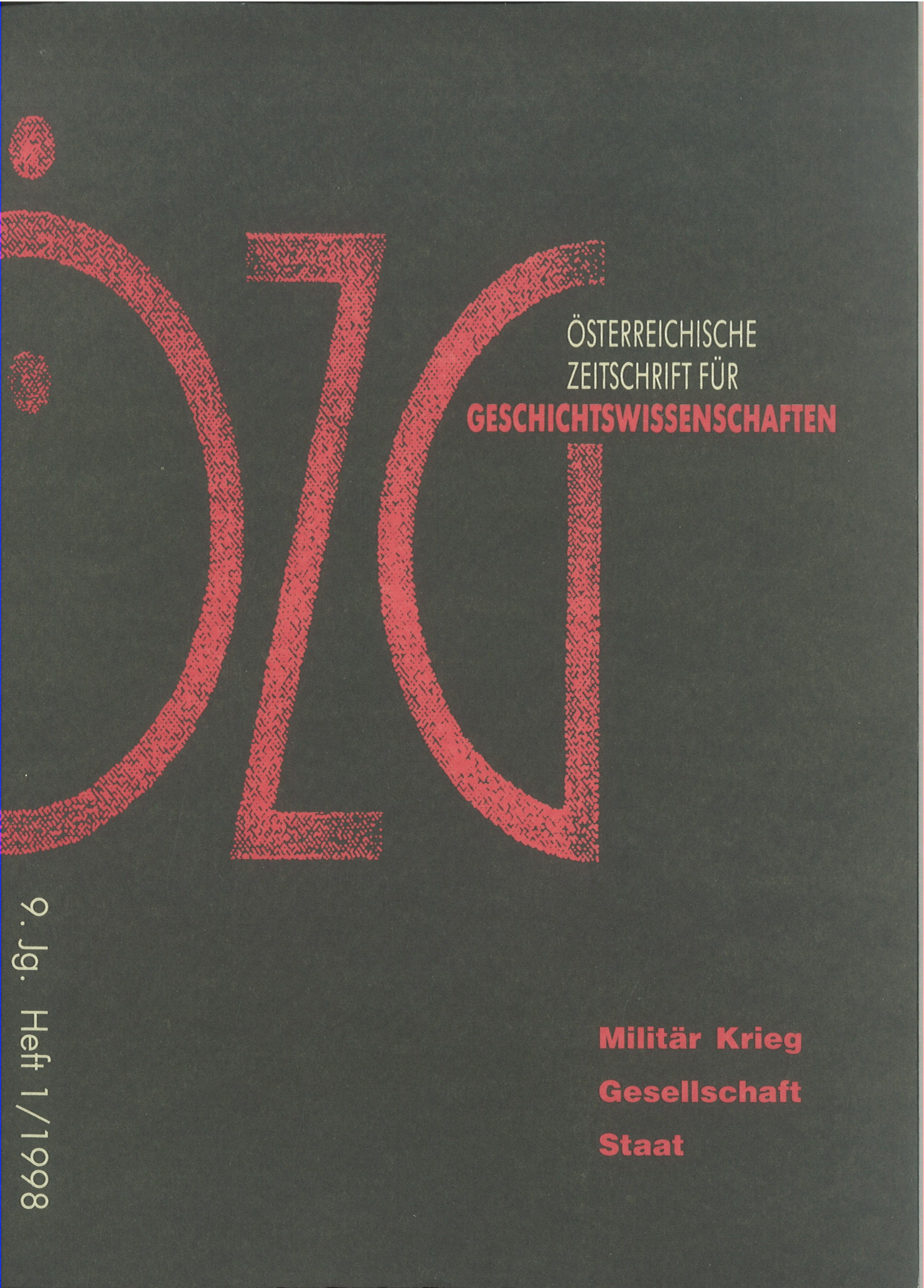Männlichkeit, Krieg und Militarismus in Großbritannien 1914-1939
DOI:
https://doi.org/10.25365/oezg-1998-9-1-3Abstract
Fears of physical devastation were shared by millions of men during the First World War. Some men attempted to avoid the risks of combat by ,shirking' or malingering: others accepted to play their allotted role and, in consequence, tens of thousands were severely mutilated. This article examines masculinity as experienced by these two groups of men during the First World War. Their anxieties did not vanish with the armistice, either: in the twenty-five years leading to the Second World War, the physical and psychological scars left by the conflict of 1914- 1918 were a continual ache for combatants and their families. Similarly, the crisis of masculinity inspired by the massive mobilisation of military resources did not end with the war: the knowledges and disciplines forged in the context of war were applied to civilians in the interwar period. Military interference in British society and the economy disturbed the aesthetics of the male body, fundamentally affecting not only the shape and texture of the male body but also the values ascribed to the body and the disciplines applied to masculinity.


